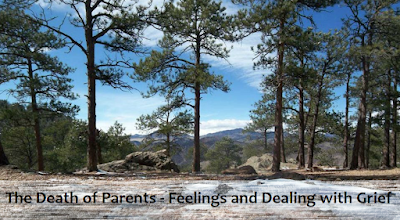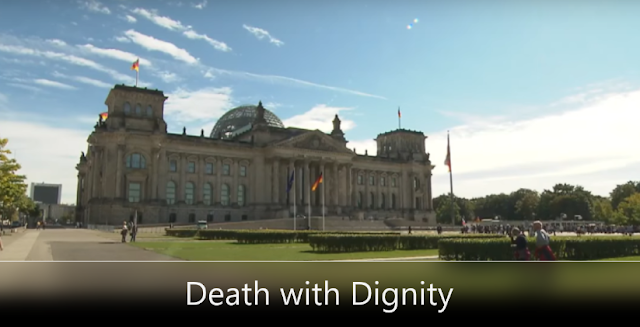The Death of Parents - Feelings and Dealing with Grief
The death of a parent is a shocking, overwhelming experience at any age. Deep within every human being, the child rests throughout life - knowing there is a mother or father to find help, protection and security. When these the parents, are no longer there, this option suddenly no longer exists.
When one of the parents dies, childhood is finally and irrevocably over, or one believes that being a child is/would be over. Suddenly some people think they are no one's child anymore. There would no longer be anyone to perceive/look at them with the familiar eyes of a mother or father. The way our parents spoke to us, no one will ever speak to us again.
The path of dealing with grief is individual and always different. The path of grieving is as individual as the relationship was between children and parents during their lifetime. Was the relationship good, close, emotional, ... were old conflicts discussed and pacified, or wasn't they? If the relationship with the parent was complicated, unstable, conflict-ridden and difficult, the grieving process might be also difficult and challenging. Daughters and sons are left with a feeling of 'conflict' - but now there is no counterpoint anymore. As any grieving process, the paths and ways of dealing with it are different for everyone, different every time - the loss and death of the parents can then be accepted after an individual period of time and one's own life can be reoriented.
Dealing with grieving children and also adult children first requires mindfulness, self-awareness and empathy - and openness regarding the time frame. We have to free ourselves from inner concepts, social ideas and norms about how long such a grieving process can last. Sometimes it's a few weeks, many weeks, sometimes it's years. For some people, grief stays with them throughout their lives. And sometimes it takes a long breath, a long time of mindfulness, reflection, perception and self-awareness.
Children, young people and adults who cannot and have not been able to adequately process and pacify their own childhood experiences and grieving people who still carry a feeling of lack, anger and sadness within themselves should be open to accept support, accompaniment with an openness to their ambivalent feelings - for these people this means, first and foremost, the willingness to seek and accept this help and to follow this path.
After the death of a parent, the situation is stressful for the remaining parent in several ways: the loss of the partner, the loss of the parenting partner and also having to endure and live with the grieving child. As mention the beginning - it is a challenging situation that many people find and will find overwhelming to survive and master.
The inner conflict between the roller-coaster of emotions, the emptiness and the pain of loss requires patience and sometimes support - this is where grief counselors can help. be open to accept help und support.
Here you can find my suggestions and thoughts about dealing with grief.
Grief is like the ocean; it comes on waves ebbing and flowing. Sometimes the water is calm, and sometimes it's overwhelming. All we can do is learn to swim and enjoy the good moments and grow by the bad one. High and Low Tide in Life






Comments
Post a Comment